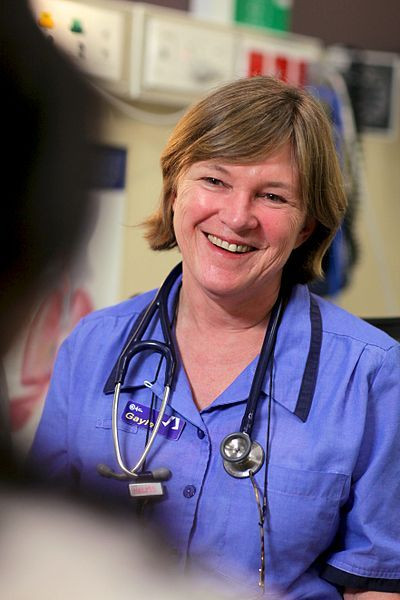Menopausal Women: OB/GYNs Undertrained And Uncomfortable, Study Finds

With the average age of menopause at 51 and average life expectancy of American women at 85, an enormous group of women will live one-third of their lives after menopause. The 2010 U.S. census, in fact, estimates a population of 50 million menopausal women by 2020.
Now a small survey of U.S. obstetrics and gynecology (OB/GYN) residents finds that fewer than one in five residents receives formal training in menopause medicine, and that seven in 10 would like to receive it. The Johns Hopkins-led study discovered that some American OB/GYN residency programs fail to offer trainees any formal curriculum or clinical experience focused primarily on women's pre- and post-menopausal health.
"It's clear from the results that the residents who responded admit that their knowledge and clinical management skills of menopause medicine is inadequate," said lead study author Mindy S. Christianson, M.D., clinical fellow in the Department of Gynecology and Obstetrics at the Johns Hopkins University School of Medicine.
The study used a Web-based survey emailed to 258 OB/GYN residency training directors identified by the Council on Resident Education in Obstetrics and Gynecology (CREOG). The training directors then forwarded the assessment to their residents. Among the 510 residents who responded, only 100 reported that their program included a formal menopause learning curriculum, while only 78 had participated in a defined menopause clinic as part of their residency.
The study, which is outlined in the journal Menopause, shows additional results that state approximately 70 percent of residents emphasized their desire to obtain more knowledge and expertise in menopause physiology, hormone and non-hormone therapy, menopause-related bone health, cardiovascular disease, and metabolic symptoms. 40 to 60 percent of the fourth-year resident respondents - those soon to complete their postdoctoral training - reported the need to improve knowledge.
"A majority of our study respondents indicated they were barely comfortable in managing women with menopause-specific problems," stated senior investigator Wen Shen, M.D., assistant professor of gynecology and obstetrics at the Johns Hopkins University School of Medicine, who specializes in treating menopausal women.
The authors conclude that a curriculum would be beneficial for increasing knowledge and clinical experience on menopause issues. Earlier this year they published their results from another case study where they found a formal menopause medicine curriculum utilizing lectures and a lab to be an effective tool to improve resident knowledge required to manage menopausal patients.
Published by Medicaldaily.com



























